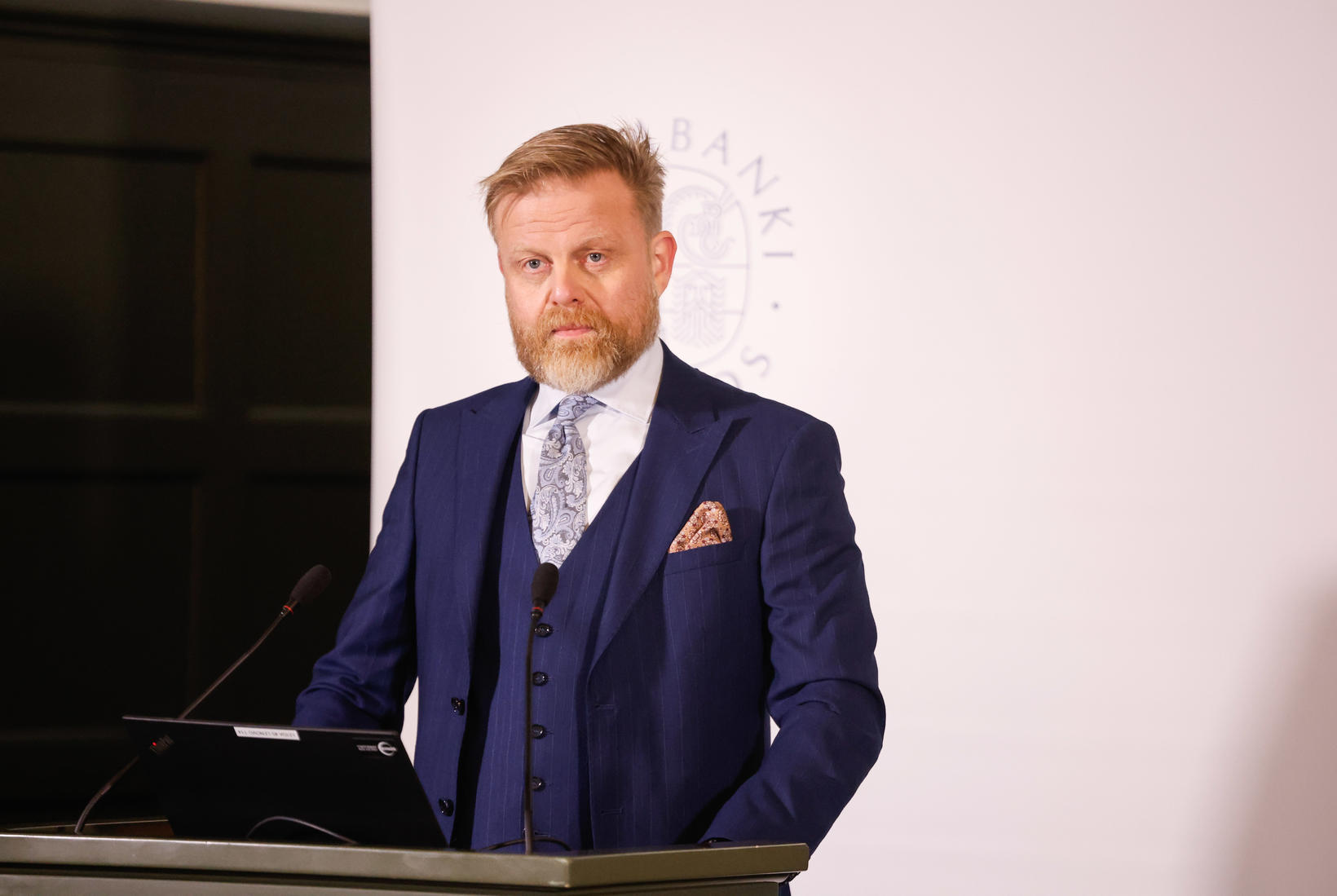Key interest rates reduced by 0.5 percentage points
The Monetary Policy Committee of the Central Bank of Iceland has decided to lower the bank's key interest rate by 0.5 percentage points.
Therefore, the bank's main interest rate, interest on seven-day fixed deposits, will be 8.5%.
It is stated in the announcement that inflation has subsided recently, but it was measured at 5.1% in October. "The slowdown in inflation is broad-based and underlying inflation has also declined. Inflation expectations have generally fallen and real interest rates have risen," says the Monetary Policy Committee.
The second time in a row that interest rates are reduced
This is the second time in a row that the committee has lowered the bank's interest rates, but in October they were decreased by 0.25 percentage points. It was the first time in almost four years, or since November 2020, that the Central Bank lowered interest rates.
Both Landsbanki's economics department and Íslandsbanki's analysis department had predicted a 0.5 percentage point interest rate cut at the Central Bank. However, Íslandsbanki had the caveat that the reduction could amount to 0.25 percentage points.
Less tension in the national economy
"The effects of tight monetary restraint continue to be felt in economic activity and the growth of domestic demand has slowed. "Unemployment continues to rise, and there is a prospect that it will reduce tension in the national economy, even if it happens more slowly than previously thought," says the statement of the Monetary Policy Committee.
"However, persistent inflation and inflation expectations above target call for caution." It is therefore necessary to continue to maintain a suitable level of restraint to bring inflation to the target within an acceptable time. The formulation of the monetary policy for the next semester will, as before, depend on the development of economic activity, inflation, and inflation expectations," it also says.
Collective agreements at the beginning of the year have set the tone
Ásgeir Jónsson, the Central Bank Governor, does not expect that the harmony established in the collective wage negotiation agreements this spring will be broken in the current wage disputes with public employees.
This was stated in Jónsson's case at a briefing regarding the interest rate decision of the Central Bank of Iceland's monetary policy committee, where the committee explained its decision to lower the policy rate by 50 percentage points.
Jón Bjarki Bentsson, Chief Economist of Íslandsbanki, asked the Monetary Policy Committee how it had anticipated the uncertainty that currently prevailed due to the wage disputes of public employees and their possible impact on wage trends in the future.
The tone was set this spring
Wage negotiations with teachers and doctors are ongoing. Doctors have called strikes and teachers are on strike.
Teachers want an agreement made with them in 2016 to be respected, which includes the equalization of wages between markets.
Jónsson said that he assumes that the agreement made this spring on the labor market has more or less set the tone for what will happen in the labor market.
"In any case, we are not assuming that the harmony established in that agreement will be broken. But that in itself is still a possibility, I cannot know about that."




/frimg/1/58/37/1583777.jpg)





